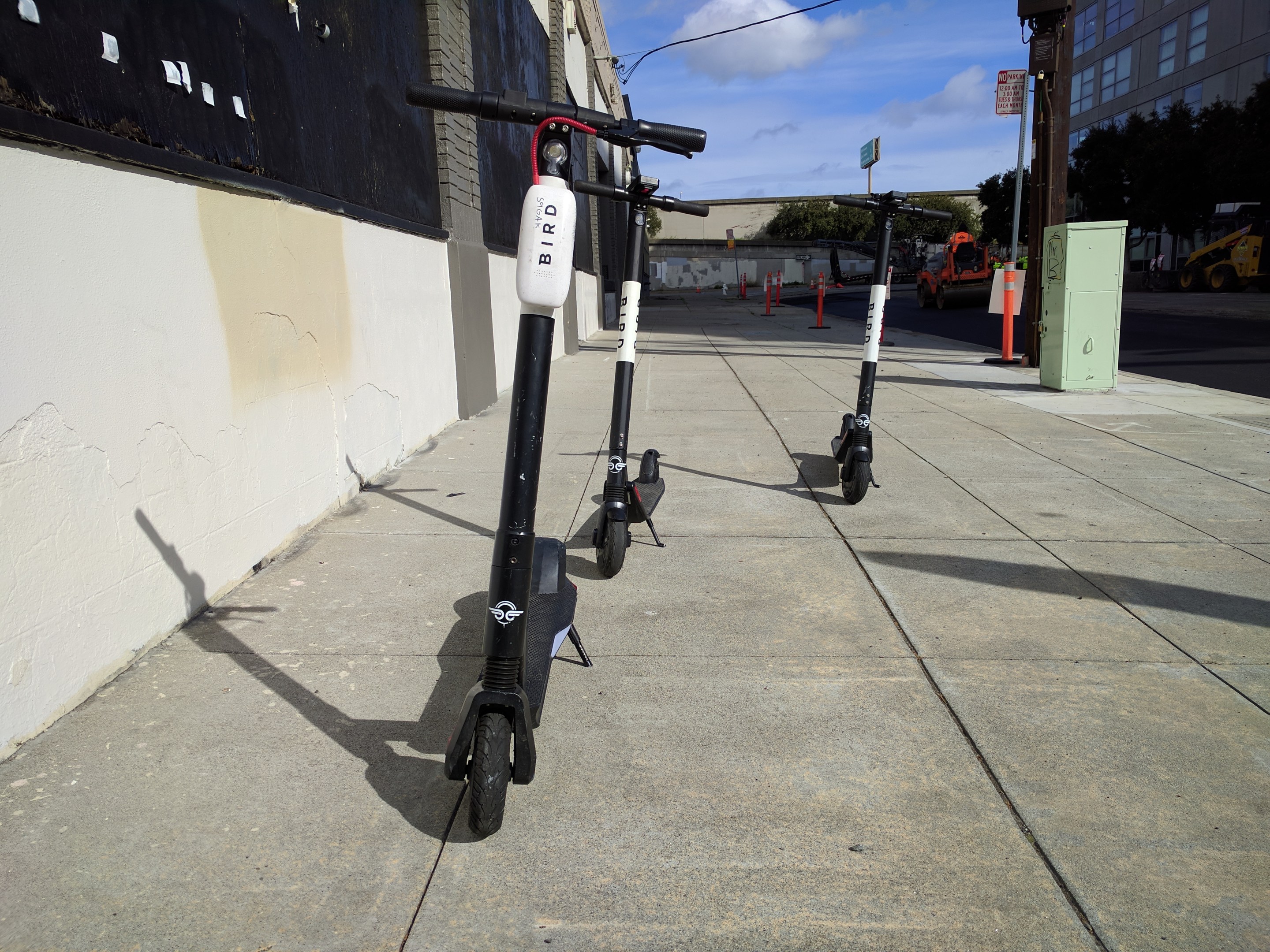Note: Metropolitan Shuttle, a leader in bus shuttle rentals, regularly sponsors coverage on Streetsblog San Francisco and Streetsblog Los Angeles. Unless noted in the story, Metropolitan Shuttle is not consulted for the content or editorial direction of the sponsored content.
Oakland is developing a permit system for scooters to operate on its streets. It's likely to include a blanket indemnity clause that scooter companies will have to sign, making sure the city is off the hook if anyone is injured riding on Oakland streets.
From section two of the draft application, provided to Streetsblog by Bike East Bay's Dave Campbell, which states that scooter companies would have to indemnify the city from any:
2) act, error, or omission, including both passive and active negligent conduct, of City and/or Indemnitees, including without limitation, any act or omission resulting from, arising out of, or relating to the design, construction, maintenance, repair, replacement, oversight, management, or supervision of any physical, environmental, or dangerous condition(s) of the Public Rights-of-Way and of any related improvements, or with respect to the suitability of the Public Rights-of-Way for Operator’s and/or its Dockless Scooter Share Users’ or Customers’ intended use.
Campbell wrote a letter to Barbara Parker, Oakland City Attorney, about the issue.
From the letter:
Please share with the public the equal indemnification requirements of other users of Oakland streets. Does AC Transit indemnify Oakland? Do Uber and Lyft? Do taxis? Do shuttle buses and vans? How would an indemnification provision required only of scooters pass constitutional muster under Due Process and Equal Protection of the laws, both state and federal?
And what about General Motors, Toyota, or even Trek and Giant and Specialized? If a city crew built a moat in the middle of Telegraph Avenue, and someone drove a Toyota into it and drowned, would the city expect one of these companies to compensate the family? Yet that seems to be what they're asking of scooter companies.
Also from the letter:
35th Avenue in Fruitvale is a current example of why indemnification is a bad idea. At a recent public meeting on speeding traffic on 35th Ave, residents on that busy, high-speed street left the meeting frustrated from Oakland’s lack of commitment to slow down traffic on an arterial street where people live.
Campbell goes on to argue that it is up to the city "...to make streets safe for everyone, and that responsibility resides squarely with OakDOT (Caltrans, etc) and proposed insurance provisions are contrary to Oakland's approved policies for safe streets, and to be a transit-first, people-rich city. Bike East Bay cannot support these indemnification provisions and will actively oppose them if necessary."
Meanwhile, Bird, Lyft, Lime, Razor and Spin have followed up with a joint letter of their own to the Oakland attorney. From that letter, dated Feb. 20, which was forwarded to Streetsblog: "Many cities have adopted reasonable indemnification provisions which do not seek to include the City’s own negligence and does not explicitly carve out the City’s responsibility to riders to maintain the City’s right of way and infrastructure." For the record, San Francisco's permit also has an indemnification clause, although it's not as stringent as what Oakland is proposing.
What do you think? Should scooter companies agree to absorb any and all damages? And why is there a double-standard with scooter companies, when bikes and pedestrians are just as vulnerable to car-centric planning, design, and lack of maintenance? Post your comments below.






